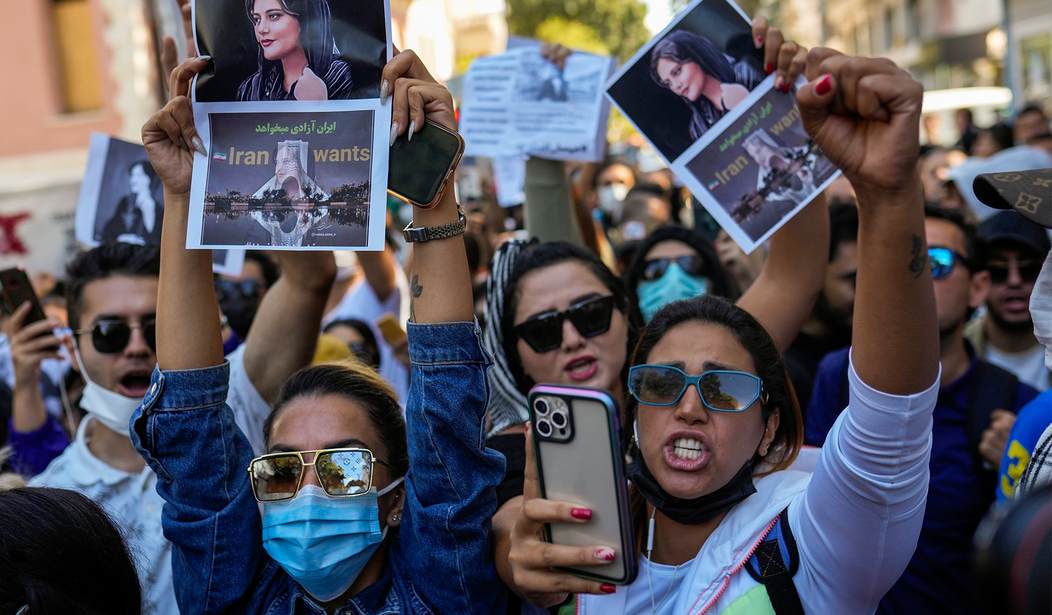Iran has been rocked by anti-government protests for years but the uprising that began in September 2022 is fundamentally different. With citizens taking to the streets, they are now demanding not only specific political and economic changes, but rather a complete overhaul of the ruling regime itself. These protests have been met with violent crackdowns by authorities, which has resulted in hundreds of deaths and thousands of arrests. The executions of detainees have come in waves, with at least 130 beautiful young lives taken in since April 21 alone, including three young protesters on May 18.
The protests in Iran have been driven by a variety of factors, including economic hardship, political repression, and widespread corruption. The Iranian people have been struggling with high unemployment rates, inflation, systemic corruption as well as social and political freedoms. People are fed up with the regime’s authoritarian policies, which limit basic freedoms and restrict access to information. Finally, corruption is rampant in Iran, with many officials engaged in not-so-subtle embezzlement of public funds and other financial crimes.
In response, Iranians have taken to the streets in large numbers, in waves of consecutive nationwide protests that first erupted in December 2017 and have continued every year since then, with the exception of a brief lull as a result of the global pandemic.
During the recent uprising, security forces used tear gas, water cannons, and live ammunition to disperse crowds. Over 750 protesters were killed and 30,000 arrested and imprisoned. More recently, regime affiliates have intentionally attacked schoolgirls with poison gas, terrorizing thousands.
On January 13, 2022, a United Nations report urged, “the international community to call for accountability with respect to long-standing emblematic events that have been met with persistent impunity, including the enforced disappearances and summary and arbitrary executions of 1988 and the November 2019 protests.”
“The most serious human rights violations in the Islamic Republic of Iran over the past four decades” have been committed since the death in police custody of Jina Mahsa Amini on 16 September 2022, Javaid Rehman, the UN Special Rapporteur on the situation of human rights in Iran said.
Recommended
The Iranian government has also taken steps to limit access to information and restrict or totally shut down access to the internet. During the most recent wave of protests, the government shut down access to social media platforms, including Telegram, WhatsApp, and Instagram, in an effort to prevent protesters from organizing and communicating.
Given the severity of the situation in Iran, it is crucial for the international community to support the protesters and demand change. This can be done in several ways.
First and foremost, the international community should not just condemn the Iranian government's use of violence and repression against protesters but also move to hold the regime fully and practically accountable. Apart from public statements, the free world must act through the United Nations and other international organizations to investigate ongoing crimes against humanity in Iran.
The Iranian people do not need material support from the West but deserve to know that they are not alone in their struggle for human rights, democracy and the establishment of a democratic, secular republic, and that the world is watching and supporting their efforts. So, in lockstep with U.S. Congressional sentiment, the international community should also provide moral and political support to Iranian people by recognizing their legitimate democratic demands and aspirations. These sentiments are duly expressed in House Resolution 100 and in this month's joint hearing of the Iran Women Congressional Caucus and Iran Human Rights and Democracy Caucus. It is in this context that political and moral support for the people can play a critical role in promoting positive change.
The people’s goal is clearly expressed in the ten-point plan for Iran’s future promoted by the opposition leader Maryam Rajavi and the coalition of pro-democracy opposition groups known as the National Council of Resistance of Iran (NCRI). At a Congressional Iranian Women Caucus recently, Congresswomen Sheila Jackson Lee (D-TX) and Nancy Mace (R-SC) led a hearing which examined the details of that democratic plan as well as ways the U.S. can support the Iranian people.
It is said that in absolute dictatorships, legitimacy of any opposition can best be measured by their organization, perseverance and sacrifice. Despite the apparent void, the Iranian people do have such a treasure. The continuation of protests, despite the brutality, are predictors of an infrastructure sustaining the waves of protests in Iran. It is also telling that women are spearheading the protests and hence have been brutally targeted.
The protests in Iran represent a critical moment and a historic opportunity. The Iranian people are demanding change, and the international community has a responsibility to support their efforts. The free world must move to hold the mullahs truly accountable for violence and repression. We must dispense with that long held mirage that the ayatollahs' behavior can be modified through concessions. Instead, we must move to support the Iranian people, who are already backed by an indigenous and experienced organized resistance movement eager to establish a democratic, non-nuclear and secular republic.
Homeira Hesami is a former political prisoner in Iran and the chairwoman of the Iranian-American Community of North Texas, a member of the Organization of Iranian American Communities. She is a medical physicist who lives in Texas.
























Join the conversation as a VIP Member